Thomas Jefferson (April 13, 1743 – July 4, 1826) was an American statesman, diplomat, lawyer, architect, philosopher, and Founding Father who served as the president of the United States from 1801 to 1809. He was the primary author of the Declaration of Independence. Following the American Revolutionary War and prior to becoming president in 1801, Jefferson was the nation's first U.S. secretary of state under George Washington and then the nation's second vice president under John Adams.
During the American Revolution, Jefferson represented Virginia at the Second Continental Congress and served as the second governor of Virginia from 1779 to 1781. In 1785, Congress appointed Jefferson U.S. minister to France, where he served from 1785 to 1789. President Washington then appointed Jefferson the nation's first secretary of state, where he served from 1790 to 1793. During this time, in the early 1790s, Jefferson and James Madison organized the Democratic-Republican Party to oppose the Federalist Party during the formation of the nation's First Party System. Jefferson and Federalist John Adams became both friends and political rivals. In the 1796 U.S. presidential election between the two, Jefferson came in second, which made him Adams' vice president under the electoral laws of the time. Four years later, in the 1800 presidential election, Jefferson again challenged Adams, and won the presidency. In 1804, Jefferson was reelected overwhelmingly to a second term.
As president, Jefferson assertively defended the nation's shipping and trade interests against Barbary pirates and aggressive British trade policies. Beginning in 1803, he promoted a western expansionist policy with the Louisiana Purchase, which doubled the nation's geographic size. To make room for settlement, Jefferson began the process of Indian tribal removal from the newly acquired territory. As a result of peace negotiations with France, Jefferson was able to reduce military forces and expenditures. In his second presidential term, Jefferson was beset by difficulties at home, including the trial of his former vice president Aaron Burr. In 1807, Jefferson implemented the Embargo Act to defend the nation's industries from British threats to U.S. shipping, limiting foreign trade and stimulating the birth of the American manufacturing industry.
Presidential scholars and historians generally praise Jefferson's public achievements, including his advocacy of religious freedom and tolerance, his peaceful acquisition of the Louisiana Territory from France, and his leadership in supporting the Lewis and Clark Expedition. Jefferson is consistently ranked among the top ten US presidents, though his relationship with slavery continues to be debated. Jefferson was a slave owner, but condemned the slave trade in his draft of the Declaration of Independence and signed the Act Prohibiting Importation of Slaves in 1807. Since the 1790s, he was rumored to have had children by his slave Sally Hemings; according to scholarly consensus, Jefferson probably fathered at least six children with Hemings. Jefferson's writings and advocacy for human rights, including freedom of thought, speech, and religion, served as substantial inspirations to the American Revolution and subsequent Revolutionary War in which the Thirteen Colonies succeeded in breaking from British America and establishing the United States as a free and sovereign nation. Jefferson was a leading proponent of democracy, republicanism, and individual rights, and produced formative documents and decisions at the state, national, and international levels.
Early life and career
Jefferson was born on April 13, 1743 (April 2, 1743, Old Style, Julian calendar), at the family's Shadwell Plantation in the British Colony of Virginia, the third of ten children. He was of English and possibly Welsh descent, and was born a British subject. His father, Peter Jefferson, was a planter and surveyor who died when Jefferson was fourteen; his mother was Jane Randolph. Peter Jefferson moved his family to Tuckahoe Plantation in 1745 on the death of William Randolph III, the plantation's owner and Jefferson's friend, who in his will had named Peter guardian of Randolph's children. The Jeffersons returned to Shadwell before October 1753.
Peter died in 1757, and his estate was divided between his sons Thomas and Randolph. John Harvie Sr. became 13-year-old Thomas' guardian. Thomas inherited approximately 5,000 acres (2,000 ha; 7.8 sq mi), which included Monticello, and he assumed full legal authority over the property at age 21.
On January 1, 1772, Jefferson married his third cousin Martha Wayles Skelton, the 23-year-old widow of Bathurst Skelton. She was a frequent hostess for Jefferson and managed the large household. Biographer Dumas Malone described the marriage as the happiest period of Jefferson's life. Martha read widely, did fine needlework, and was a skilled pianist; Jefferson often accompanied her on the violin or cello. During their ten years of marriage, Martha bore six children: Martha "Patsy" (1772–1836); Jane (1774–1775); an unnamed son who lived for only a few weeks in 1777; Mary "Polly" (1778–1804); Lucy Elizabeth (1780–1781); and another Lucy Elizabeth (1782–1784). Only Martha and Mary survived to adulthood. Martha's father John Wayles died in 1773, and the couple inherited 135 slaves, 11,000 acres (17 sq mi), and the estate's debts. The debts took Jefferson years to satisfy, contributing to his financial problems.
Martha later suffered from ill health, including diabetes, and frequent childbirth weakened her. Her mother had died young, and Martha lived with two stepmothers as a girl. A few months after the birth of her last child, she died on September 6, 1782, with Jefferson at her bedside. Shortly before her death, Martha made Jefferson promise never to marry again, telling him that she could not bear to have another mother raise her children. Jefferson was grief-stricken by her death, relentlessly pacing back and forth. He emerged after three weeks, taking long rambling rides on secluded roads with his daughter Martha, by her description "a solitary witness to many a violent burst of grief".
If you want to read a whole lot more, go here: https://en.wikipedia.org/wiki/Thomas_Jefferson
- SERVES
- 2
- SERVING SIZE
- 1 (6-ounce) salmon fillet, 4 spears of asparagus, and 1/2 cup of potato slices per serving
- COOK TIME
- 20 Min
Need an easy dinner packed with all the flavors of the season? Try our Sheet Pan Maple Salmon! It's an easy all-in-one recipe that's got something for the whole family. Plus, because it's all-in-one, cleanup is a breeze. After all, nothing's better than a fast and delicious dinner without the fuss.
- 2 tablespoons maple syrup
- 1/2 teaspoon Dijon mustard
- 2 tablespoons olive oil
- 1/2 teaspoon salt, plus extra for sprinkling
- 1/4 teaspoon black pepper, plus extra for sprinkling
- 1 sweet potato, peeled and cut into 1/4-inch slices
- 8 spears fresh asparagus, ends trimmed
- 2 (6-ounce) fresh salmon fillets
- Preheat the oven to 425º. Coat a rimmed baking sheet with cooking spray.
- In a small bowl, combine syrup and mustard; mix well and set aside.
- In a large bowl, combine oil, 1/2 teaspoon salt and 1/4 teaspoon pepper; mix well. Add potato slices and toss until evenly coated. Place in a single layer on a baking sheet. Bake 10 minutes, then turn potato slices over and move to one side of tray (overlapping is fine).
- Toss asparagus in remaining oil mixture, then place on baking sheet. Add salmon to baking sheet, lightly sprinkle with salt and pepper. Drizzle syrup mixture on salmon and potato slices.
- Return to oven and bake 10 to 15 minutes or until salmon flakes easily with fork. Serve immediately.
2005 – Glendale train crash: Two trains derail killing 11 and injuring 200 in Glendale, California, near Los Angeles.
1923 – Anne Jeffreys, American actress (d.2017)
1925 – Paul Newman, American actor, philanthropist, race car driver and race team owner (d. 2008)
1955 – Eddie Van Halen, Dutch-American musician (Van Halen)




(cropped).jpg)


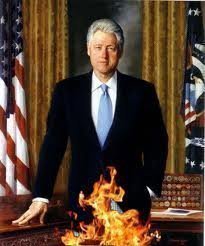

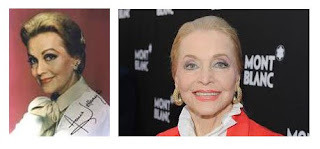
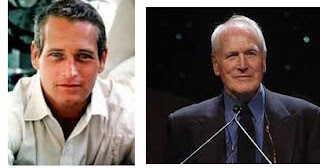
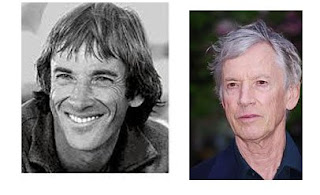
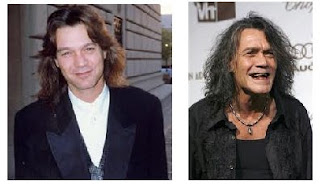

1 comment:
Thomas Jefferson wrote extensively on his love of gardens and books. He was a prolific, inventor and writer, making him a favorite, father and man of history.
Thank you for giving him space in my morning read.
Godspeed,
Post a Comment